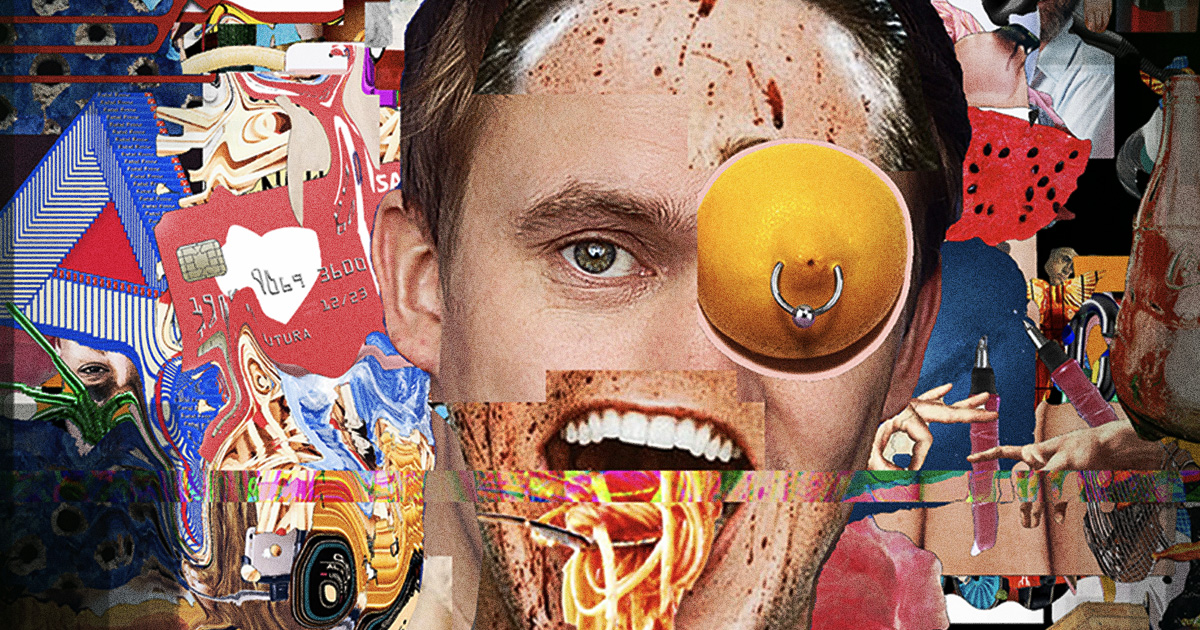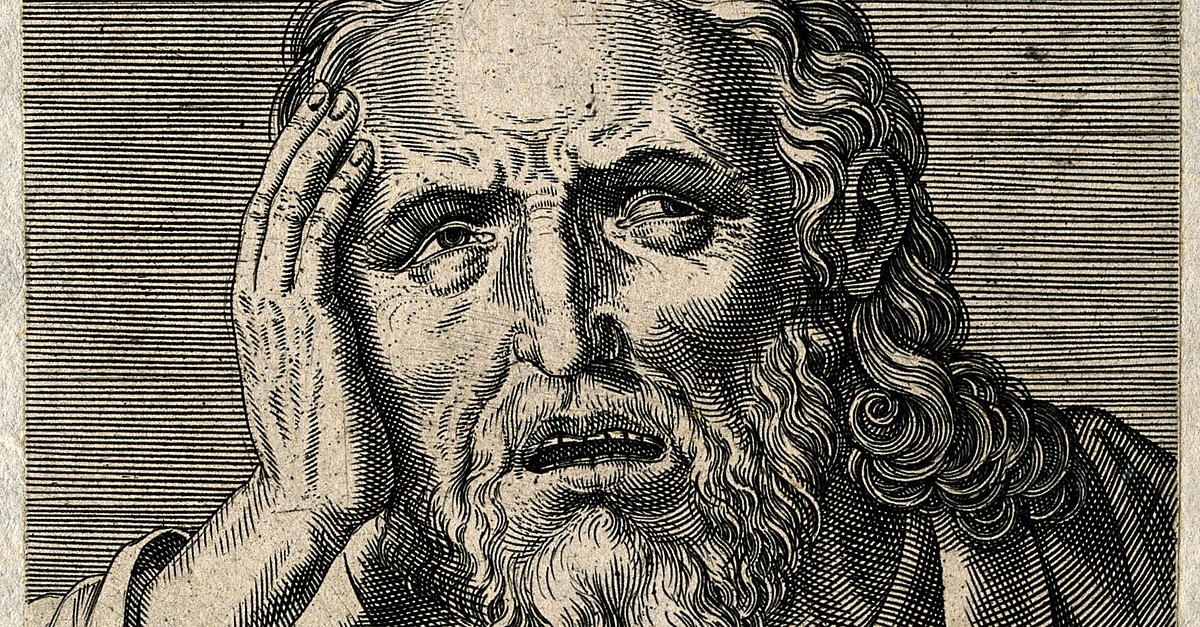The situation where we are exclusively relating to our own projections (in place of actual reality) is a profoundly sterile one – no change could ever take place here, no matter how long we stick at it. No change can ever take place because – as a result of this strategy of relating only to our own projections (if we can call that a ‘strategy’) – we are ensuring that we never encounter anything new. ‘Never encountering anything new’ means never changing, obviously enough!
The more convinced we are that our projections are not our projections and are – rather – ‘rock solid facts that exist in reality’ the more stuck we are, and we are absolutely convinced on this point! Our confidence in life comes from a belief in our projections as being actual reality and this means that we are dependent upon this erroneous belief – we need to carry on seeing our projections as being real in order for the illusion that is our conditioned life to continue functioning as such. We are dependent upon not seeing our projections as projections to continue ‘enjoying’ (if that’s the right word) what we think we’ve got but which we haven’t. Being stupid is our strategy, so to speak, and this is why Chogyam Trungpa talks in terms of intelligent stupidity – we’re not really dumb, we’re only playing at it in order to obtain something that we couldn’t obtain any other way, which is the illusion of the ego as a real thing.
We need therefore to continually believe that our mental projections are an actual reality in order to preserve the integrity of ‘who we think we are’, which is the phenomenal self. The day we stop believing that our projections are actually real is the day we stop believing in the absurdity which is the concrete identity. Why exactly is the subjective reality of the concrete identity an ‘absurdity’ however? From our ordinary POV this does not at all seem to be the case – on the country, the self is the very last thing we’re ever going to see as being absurd! Anything else may seem absurd to us, but not this…
Everything depends upon our point of view, however. The whole world (or at least what we understand as being the world) depends upon our point of view. More than this, what we see as being who we are depends on our POV and so our POV isn’t just a POV – it’s something else, it’s something we can’t ever question, it’s something that has a death-like grip on us. It’s an addiction that is eating us alive! Our POV is us and at the same time it is only ever just another point of view; how then (we might ask) can these two things go together at? How can my arbitrary POV be who I am?
What we’re looking at here are two widely disparate things, on the one hand we have ‘just another viewpoint’ (which we have absolutely no attachment to since one viewpoint is as good as another) and on the other hand we have the rock-solid identification of ‘this is me’ (about which there is nothing arbitrary at all). Identity is when every last trace or vestige of arbitrariness has been lost; it is when every last trace of randomness has fled. What’s random about ‘me’, after all? ‘Me’ is the opposite of random, it’s special – me is always me, me could never have been anything else but me. ‘Me’ is a foregone conclusion; it’s who I always was and always will be, and so there’s nothing arbitrary about it at all (or so we would say, at least).
The state of selfhood is a state of being totally constrained, in other words. It is a state of limitation that can’t see itself to be limited; it is a rigid and compulsive viewpoint that we don’t see to be in the least bit rigid and compulsive. When we see that everything – the whole world, in fact – is dependent upon our POV then this is what we call ‘an awareness of relativity’ and the awareness of relativity is fatally injurious to the state of concrete selfhood. The self or ego can only exist as ‘a going concern’ in a world where all meanings (all the building blocks of the ongoing narrative) are of the absolute or final nature – things always have to mean what we say they mean, or what the authorities say they mean, in other words. Everything has to be nailed down by our thoughts; nothing can be allowed to drift away from the allocated equilibrium values (i.e. the map) into whatever uncharted dimensions actually exist out there (and which we will staunchly deny the existence of). Nothing can be let to simply ‘go free’, in other words; freedom will lead us astray from the True Path just as the devil will, if we’re not very cautious…
When the meaning of things changes as we change our perspective on them this detracts from the believability of the self which serves as our fixed reference point. This is like having the goal posts moved to one side just as we approach them, only in this instance the ‘goal posts’ represent our understanding of the world, our understanding what’s going on around us and with us. Naturally when our view keeps shifting and changing every time we move this ‘detracts from the believability of the self which is serving as a fixed reference point’. If there is ‘no fixed view’ then this means that there is ‘no fixed reference point’ and if there is no fixed reference point that means that there is ‘no self’. Identity depends on having a fixed frame of reference – identity is ‘having a fixed FOR’ – and so when we talk about ‘the one and only correct way to see things’ (whatever that might happen to be) we’re talking about the conditions that are necessary if we are to have the experience of being the concrete self or identity. If on the other hand there are lots and lots of viewpoints that we can take (an infinite number, in fact) then this is the furthest away from ‘self’ or ‘identity’ that it is possible to get.
If I wish to continue living life as this concrete identity I have to make sure therefore that I continue seeing the world as a static picture. I have to worship limits; I have to live in a world where all meanings are fixed rather than mutable, a world with no relativity in it. Relativity is all there is when it comes down to it and yet the self requires a world in which all meanings are absolute – this is the only way it can get to be fixed and final, which it absolutely needs to be if the illusion is to work. This is why the chaotic and the random are so very unpalatable to us (even though we might be fascinated by them at the same time) – they are unpalatable to us because they belong to the world where there are no fixed meanings, which just happens to be the only world there is. When thought has too much influence on us then we find ourselves taking against chaos and randomness and trying as a result of this deep-rooted aversion to create a world for ourselves that is free from the taint of chaos, free from the taint of disorderliness.
This is what thought always does of course – it tries to eliminate all signs of ‘the enemy which is chaos’, it tries to make everything orderly or well-behaved. It tries to make everything ‘be the way it thinks they should be’. Another way of putting this is to say that thought always strives to create systems – a system is a world with all the chaos, all the disobedience, all the unruliness, taken out. The system is how the rational mind thinks the world should be. We shouldn’t however say that thought actually ‘creates’ systems, just that it tries to; even when it seems that thought has successfully created a system, the jinx is there somewhere, momentarily out of sight perhaps, but it’s there all the same and it is never going to go away. There is no such thing as a perfectly working system in other words – that’s just an ‘unrealistic ideal state’ that we are forever dreaming about. It’s something that fascinates us, but this fascination of ours is unhealthy – it’s unhealthy because it won’t ever take us anywhere else, it’s unhealthy because it will keep us rooted to the spot forever…
We’re constantly straining for this ideal state (just as long as we’re working on the basis of thought) and that’s one reason why we are so rigid and inflexible, and we are also straining to get away from the threat of chaos (since chaos puts our rational dreams in a state of jeopardy) and that is the other reason for our rigidity (and both of these reasons are of course the same reason when it comes down to it). It is after all only by straining after the unattainable ideal which is ‘the perfect system’ that we can perpetuate the illusion of the concrete identity and so it is from the belief that this ideal can be attained that all our feverish goal-seeking motivation is derived. We are not the inveterate goal-seekers that we are because we want to ‘achieve things of a pragmatic nature’ but because we are acting out this overwhelming (and ultimately insane) yearning for ‘the ideal state’ which does not exist in reality, which is the same thing as the overwhelming yearning to be the concrete self.
We live ‘in thrall to our projections’, in other words; we are helplessly hypnotised by them, captured by them, captivated by them, controlled by them. It is the fact that we are in thrall to our projections that causes us to act mechanically – because of this hypnosis we are ‘acting under compulsion’ every step of the way without knowing it. This is the utterly ubiquitous situation where we are ‘exclusively relating to our own projections in place of the actual reality’ and with regard to this ubiquitous situation we can say three things: [1] is that there is absolutely no freedom in it, [2] is that there is no chance of anything ever changing in it, and [3] is that it doesn’t really exist.
Art: wallpaper.dog







Sandeep
Hey Nick,
Your line on systems of thought reminded me of Pope’s ~
“Atoms or systems into ruin hurl’d, And now a bubble burst, and now a world.” (An essay on man)
Our efforts seek to deny or escape the What is. And we are always guided by our projections. We don’t usually see this because we never question it.
Just like UG or Jiddu who said the reason the solutions don’t seem to work is because there’s no problem in the first place.
All we are straddled and left with are only solutions.
Also, can we argue that even what anyone (be it whoever) says is a point of view? :)🤷🏻♂️
So by saying we are ruled by our projections we are also presupposing that there’s a “self”? And how do we undo or free ourselves from this tyranny?
Alain
There might be a difference between no-self and no-enduring sense of self. In my mind this sense of self comes into play when ‘situations’ requires a sense of self. And I think we have to be cautious here when denying ‘Self’. Our ordinary ‘self’ or more precisely our sense of self is kind of a claim, the claim that we are unique, distinct, separated, and special. Now it may happened that this separated, unique, distinct ‘self’, kind of vanishes let us say ‘out of sight’, when this happens one ‘sees’ that all beings are already ‘Self’, and the ‘other’ ‘self/selves’ kind of loses all credibility as the king on the throne. We kind of ‘see’ that there is no such things as ‘plural’ selves, only one single Self for all and that it has always been that way. It is not something new, it always have been this way for everyone/all beings. On a day to day basis, we tend not to see things this way, we tend to think that self/selves are ‘real’, that there is one self that talks and another distinct self that listens, that we are two, not one. It is this ‘twoness’, this plurality of selves that dissolves, that loses all credibility, and what comes in foreground is this ‘universal’ same for all ‘Self’.
By the way, it is impossible to talk about a viewpoint without a view and vice versa, in fact to talk about viewpoint is already a view. And no, the viewpoint (observer) is not the view (observed) structurally. And yes, the viewpoint ‘is’ the view process wise; implicit in any view, is viewpoint and vice versa. Where does the viewpoint ends and the view/world begins? They are one, not two, inseparable. What we look from ‘is’ what we look at, but this ‘is’ isn’t the is of equality or identity, it is the ‘is’ of process. The observed is process wise inseparable from the observed. A weltanschauung is as much viewpoint as it is view.